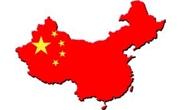Government/Policy

April 3, 2018
Administration Plans More Tariffs Even as Chinese Retaliate Over 232
Written by Tim Triplett
Tensions between Washington and Beijing over China’s policies toward U.S. and foreign investment and the multibillion-dollar trade surplus with the United States continued to escalate this week. In retaliation for the Trump administration’s tariffs of 25 percent on steel and 10 percent on aluminum, which took effect March 23, China has imposed tariffs on up to $3 billion in U.S. exports, mostly agricultural products, effective Monday, April 2.
For about 120 items, concessions made earlier by the Chinese have been withdrawn, resulting in a 15 percent tariff on certain U.S. exports, including fresh fruits, dried fruits and nut products, wines, modified ethanol and seamless steel pipes. For eight other items, including aluminum scrap and frozen pork and related products, the retaliatory tariff amounts to 25 percent, reports Washington trade attorney Lewis Leibowitz.
Under pressure from its allies, the Trump administration granted temporary exclusions from the Section 232 tariffs to Canada, Mexico, Australia, Argentina, Brazil, South Korea and the EU countries until May 1 while trade negotiations continue. China, on the other hand, remains the main target of U.S. trade action.
Apparently undeterred by China’s reaction to the Section 232 tariffs, the U.S. Trade Representative this week is expected to recommend additional tariffs on $50 billion or more of Chinese imports as a result of the USTR’s investigation into China’s allegedly unfair intellectual property practices.
A statement from China’s Ministry of Finance claims that the U.S. tariffs violate the WTO agreement and have severely undermined China’s position. Suspending the tariff concessions on U.S. imports, the ministry said, is a justified move to safeguard China’s interests, using WTO rules.







